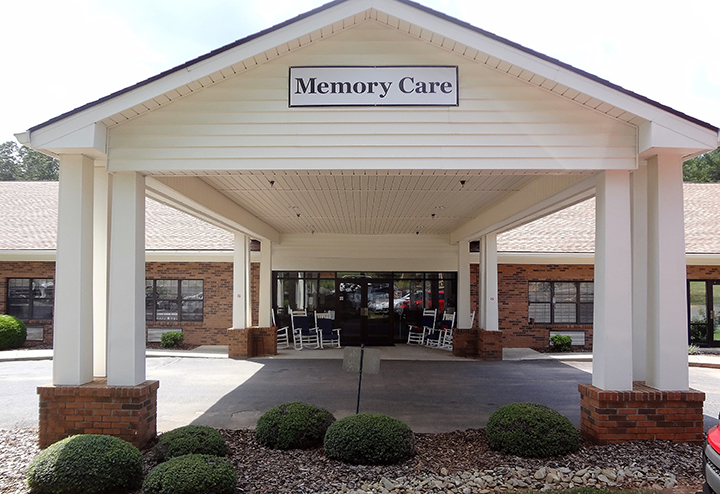Creating a Safe and Encouraging Atmosphere: In-Home Memory Care Basics
Developing a caring and safe environment for people needing in-home memory treatment is vital to their well-being and lifestyle. From making certain security within the home to using efficient communication strategies and executing memory-friendly layout aspects, there are important parts that add to a holistic care approach. By concentrating on creating a helpful community that provides to the unique requirements of those with memory impairments, caregivers can considerably enhance the day-to-day experiences of their loved ones.

Safe Living Setting
Developing a secure and hazard-free living atmosphere is vital when giving in-home memory care for individuals with cognitive impairments. Making sure the security of the specific with memory loss is critical to prevent accidents and promote a sense of well-being.
Furthermore, it is crucial to mount safety and security attributes such as grab bars in washrooms and hand rails along stairs to give assistance and protect against crashes. In addition, making use of modern technology such as activity sensing units and alarm systems can alert caregivers if the specific wanders or remains in distress. Developing a risk-free living atmosphere also entails executing approaches to stop roaming, such as using door alarm systems or locks to limit access to harmful areas. By prioritizing safety steps and getting rid of possible dangers, caretakers can supply a encouraging and safe environment for individuals with cognitive disabilities getting in-home memory treatment.
Reliable Communication Approaches
Applying tailored communication approaches is crucial in promoting meaningful interactions with people with cognitive disabilities in the context of at home memory care. Efficient interaction plays a vital role in producing an encouraging environment that improves the well-being and high quality of life for people with memory issues. When interacting with a person experiencing cognitive decline, it is necessary to make use of easy and clear language, keep a calm and positive tone, and give aesthetic cues to help understanding.
One trick strategy is to practice energetic listening, revealing empathy, perseverance, and regard throughout conversations. Non-verbal cues such as faces and body movement can additionally help convey understanding and support. Furthermore, making use of memory treatment by discussing past experiences or using songs and art can use long-term memories, sparking connections and stimulating interaction.
Additionally, integrating normal regimens and constant interaction patterns can supply a feeling of experience and security for people with memory problems. By applying these interaction approaches, caretakers can develop significant connections and promote a sense of convenience and count on the at home memory treatment setting.
Memory-Friendly Design
Given the significance of creating an encouraging setting for people with memory problems through efficient interaction strategies, the incorporation of memory-friendly layout aspects in the home becomes critical in maximizing their everyday experiences and overall health. Memory-friendly style concentrates on enhancing safety and security, comfort, and independence for people with cognitive disabilities. Simple alterations can make a substantial difference, such as using contrasting shades to enhance presence and lower complication, integrating clear signs to help navigation, and lessening clutter to prevent sensory overload.
Including familiar elements from the individual's past, such as favored items or personal photos, can evoke favorable memories and develop a sense of experience. By incorporating these memory-friendly layout elements, caretakers can provide a supportive and risk-free living room that makes it possible for people with memory issues to maintain their independence and quality of life. Charlotte Memory Care.
Daily Routine Planning
When developing a daily routine for individuals with memory issues, careful preparation is important to support their cognitive function and total health. Developing an organized routine can help in reducing stress and anxiety, confusion, and disorientation commonly experienced by those with memory problems. Begin by including familiar activities that straighten with the individual's preferences and interests. Consistency in daily routines can give a feeling of safety and stability, assisting in the conservation of cognitive capabilities.
Flexibility is essential, as some days may need changes based on the person's state of mind and power degrees. Routinely assessing and adapting the everyday routine will certainly aid guarantee its performance in advertising a reassuring and positive atmosphere for individuals with memory difficulties.
Support System Application
Establishing a robust network of helpful individuals plays a critical role in enhancing the quality of care and well-being for people calling for memory assistance. Relative, pals, health care experts, and neighborhood resources can all add to developing a solid support system. Communication among these Home Page people is crucial to make certain that the demands of the private with memory challenges are met effectively.
Household members are often the key caretakers and develop the foundation of the support group. They supply daily treatment, emotional assistance, and companionship. It is essential for member of the family to look for help and respite when required to stop fatigue and guarantee the very best possible take care of their liked one.
In enhancement to household assistance, involving health care specialists such as therapists, nurses, and physicians can give specialized care and support. These specialists can offer useful understandings, clinical suggestions, and aid in managing the individual's condition.

Final Thought
Finally, developing a safe and supportive atmosphere for individuals with memory Discover More care requirements find out is necessary for their health. By developing a secure living setting, making use of efficient interaction methods, integrating memory-friendly style aspects, preparing everyday regimens, and carrying out a solid assistance system, caregivers can assist enhance the lifestyle for those with memory loss. These important elements collaborate to develop a nurturing and encouraging setting that advertises self-reliance and enhances overall lifestyle.
Developing a hazard-free and safe and secure living setting is vital when offering in-home memory treatment for people with cognitive disabilities. By prioritizing safety actions and eliminating prospective hazards, caretakers can supply a safe and supportive atmosphere for individuals with cognitive problems getting in-home memory treatment.
Establishing a durable network of helpful individuals plays a crucial function in enhancing the top quality of care and health for individuals calling for memory assistance - Charlotte Memory Care. Communication amongst these individuals is crucial to make sure that the needs of the specific with memory challenges are fulfilled efficiently
